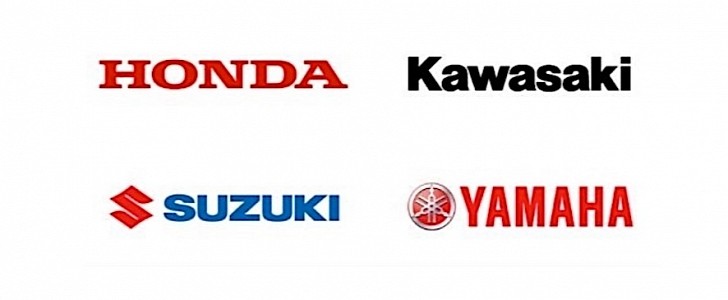There was a time when carmakers were trying out all sorts of crazy ideas to make electric automobiles stick. One of these ideas (people are still trying to make this happen) involved cars of different makes sharing swappable batteries.
The hurdles in making this a reality for the auto industry are, of course, immense, and we’ll probably never get to see such a thing ever happening on a large scale. But perhaps the motorcycle industry can do things a bit differently.
Back in 2019, Honda, Kawasaki, Suzuki, and Yamaha formed the so-called Swappable Battery Consortium for Electric Motorcycles. The organization’s main goal was to define the standards that would govern future mutual-use swappable batteries so that everybody could profit from a shared technology.
It took the four companies quite some time, but this week, they finally announced having reached an agreement to standardize the said batteries. What exactly that means was not yet made public, but we can all imagine a future when you could easily use the electric battery of a Honda to power your Yamaha.
“While we will continue cooperation to build an environment allowing battery mutual-use based on our agreement, we will also be competing with each other to develop attractive products that meet the needs of our customers,” said in a statement Noriaki Abe, Honda managing officer, as if trying to fight concerns this could mean some sort of alliance between the four.
“Through our efforts in both cooperation and competition, we will work towards the widespread adoption of electric motorcycles to realize a sustainable society.”
This week’s agreement covers electric motorcycles, but Honda and Yamaha are involved in something similar, this time with KTM and Piaggio. That deal covers the L-category vehicles (mopeds, motorcycles, tricycles, and quadricycles with a maximum continuous rated power of no more than 4 kW/5 hp).
Hopes are that whatever work gets done during these initiatives could lead to an international standard.
Back in 2019, Honda, Kawasaki, Suzuki, and Yamaha formed the so-called Swappable Battery Consortium for Electric Motorcycles. The organization’s main goal was to define the standards that would govern future mutual-use swappable batteries so that everybody could profit from a shared technology.
It took the four companies quite some time, but this week, they finally announced having reached an agreement to standardize the said batteries. What exactly that means was not yet made public, but we can all imagine a future when you could easily use the electric battery of a Honda to power your Yamaha.
“While we will continue cooperation to build an environment allowing battery mutual-use based on our agreement, we will also be competing with each other to develop attractive products that meet the needs of our customers,” said in a statement Noriaki Abe, Honda managing officer, as if trying to fight concerns this could mean some sort of alliance between the four.
“Through our efforts in both cooperation and competition, we will work towards the widespread adoption of electric motorcycles to realize a sustainable society.”
This week’s agreement covers electric motorcycles, but Honda and Yamaha are involved in something similar, this time with KTM and Piaggio. That deal covers the L-category vehicles (mopeds, motorcycles, tricycles, and quadricycles with a maximum continuous rated power of no more than 4 kW/5 hp).
Hopes are that whatever work gets done during these initiatives could lead to an international standard.

